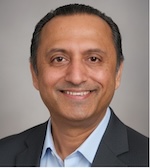GIKI, Topi, Pakistan | December 02-04, 2025

Symposium on Smart Sensing for e-Healthcare Applications using IoT, AI and ML Technologies
Coordinators:
M. Aslam, Prof. Maj Gen (Retd.)
Vice Chancellor, City University, Islamabad, PakistanMuhammad Ilyas, Ph.D.
Professor, and Former Dean, College of Engineering and Computer Science, Florida Atlantic University, Boca Raton, Florida, USAShaftab Ahmed, Engr.
Former Associate Professor, Bahria University, Islamabad, PakistanAdjunct Faculty, Electrical and Computer Engineering, University of North Carolina, Charlotte, NC, USA
Summary:
eHealthcare uses digital technologies such as the smart sensors, internet of things, and data analytics to deliver, manage, and improve healthcare services. It encompasses electronic health records, telemedicine, online health information, remote monitoring, and other innovations that enhance access, efficiency, and quality of care for both patients and healthcare providers.Communications and Sensor Networks:
The advances in communication and sensor networks, play an important role in offering eHealthcare services. Sensor-networks exploit personal wearable devices used to measure various clinical parameters of patients. Such an exercise is useful for diagnostics, post operation monitoring, and rehabilitation in case of serious injuries, heart attacks or brain trauma etc. Physiological sensors are available for temperature, humidity, blood pressure, oxygen, and heartbeat measurements. The implementation of high-speed broad-band data transfer provides opportunities for massive data streaming of virtually all patients equipped with implantable and wearable devices that contain monitoring and sensing capabilities.Informatics for Healthcare:
The healthcare informatics handles primarily three aspects i.e. organizational, operational, and technological. The communication networks connect patients, medical professionals, and data storage. Data analytics can be performed locally at the edge, fog and in cloud domains. The results can be communicated to appropriate destinations using brokered networks.Challenges and Opportunities:
The eHealthcare industry has great potential and opportunities but faces enormous challenges as well. In this regard, Smart Sensors, Internet of Things (IoT), Artificial Intelligence (AI), Machine Learning (ML), and Augmented Intelligence (AuI) have potential and promise to significantly enhance all aspects of healthcare.Potential themes may include but are not limited to the following:
- Intelligent techniques for IoT cloud computing for healthcare
- Intelligent techniques for IoT edge/fog computing for healthcare
- Augmented Intelligence for enhancing healthcare services
- Enabling IoT cloud convergence technologies for smart healthcare
- Machine Learning (ML) for medical data analytics
- Energy-efficient data offloading and computing for smart sensors in healthcare applications
- Medical IoT and big data analytics
- IoT cloud for human activity monitoring
- Context-aware situation understanding for smart healthcare
- Ambient assisted living for elderly and physically compromised individuals
- Deep learning approaches for smart healthcare
- Privacy and security issues in sensors data management of smart healthcare
- Dynamic resource provisioning for mobile healthcare
- Techniques, algorithms, and methods of processing smart healthcare data over the IoT cloud
Registration:
Visit HONET registration at Register.Symposium Speakers:

Professor, E&CS, Florida Atlantic University, Boca Raton
Florida, USA
Florida, USA

Founder and CEO
Aspire Pakistan Talk details...
Aspire Pakistan Talk details...

Vice Chancellor, City University
Islamabad, Pakistan
Islamabad, Pakistan




 conference program
conference program


